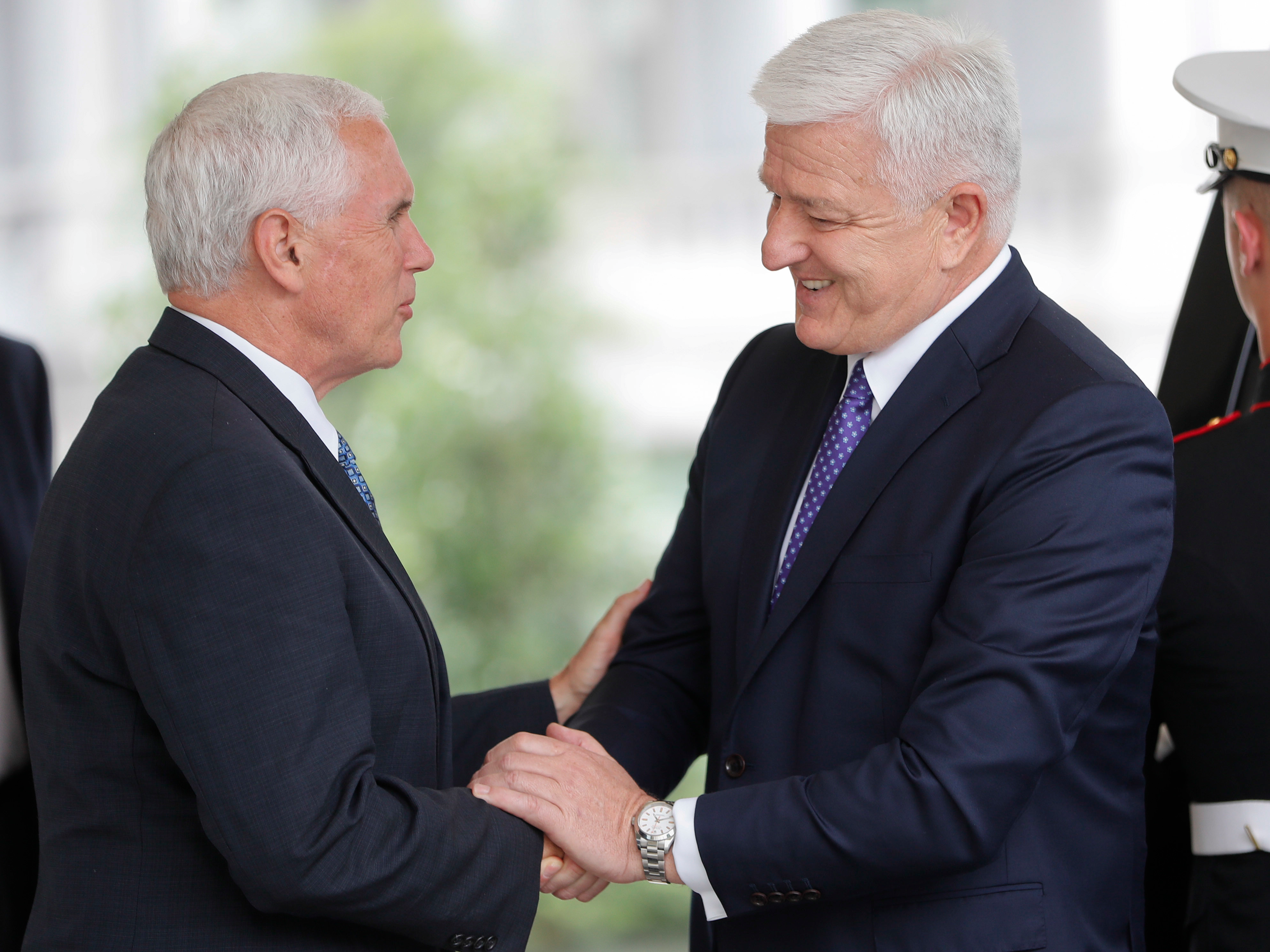Vice President Mike Pence has sought to establish himself as a steady hand in the White House, even as President Donald Trump’s administration remained embroiled in successive crises since the inauguration in January.
Largely opting for low-key public appearances and meetings both domestically and abroad, Pence has limited his public remarks to closely choreographed statements, as opposed to the bombastic style of the commander-in-chief.
Despite this, Pence’s public activities have not gone without some scrutiny. His positions on a number of issues have also prompted the ire of critics.
Here are ten things you should know about Pence’s policies and beliefs – and how he acted on them over the years.
Pence didn’t want women serving in the military, he wrote in a 1999 op-ed that “Mulan” was liberal propaganda, and proof that women in the military doesn’t work (referring to her love interest in another soldier).

In 2000, Pence wrote an op-ed in which he said "smoking doesn't kill." The article resurfaced during the 2016 election because of the claim, which Penc appeared to contradict by saying in the same op-ed, "smoking is not good for you."

While running for Congress in 2000, Pence wrote on his website that money funding research for HIV/AIDS should be moved to fund conversion therapy, "which provide assistance to those seeking to change their sexual behavior."

Pence told the Hill in 2002 that he never eats alone with a woman other than his wife and he doesn't attend events featuring alcohol without her.

During his time in Congress, Pence co-sponsored multiple pieces of legislation for a "federal shield law," which would have allowed reporters to keep confidential sources secret, even if the government requested them.

Pence in 2006 cited a Harvard researcher in remarks where he declared same-sex marriage would bring about a "societal collapse."

In 2011, Pence authored a bill to completely defund Planned Parenthood, and signaled he was willing to prompt a government shutdown over it.

In a bid to limit abortions, Pence in 2011 sought to change how and when federal funds for abortions could be used, which typically applied in cases of rape or incest. Pence wanted to change the term, "rape" to "forcible rape," but later backed off amid criticism.

While governor of Indiana, Pence signed the 2015 Religious Freedom Restoration Act, which was meant to allow business owners to cite religious beliefs as reason to refuse service to members of the LGBTQ community.

While governor of Indiana, Pence was blamed for an HIV crisis in his state after he moved to slash funding for Planned Parenthood in 2011. A local Planned Parenthood facility had to close in 2013 because of the spending cut. That facility was the only HIV testing center in Scott County, which faced a deepening drug-use problem that was believed to have hastened HIV outbreaks.


